A brief history of the cinemas in Gainsborough.
When it comes to cinema entertainment the history books suggest that Gainsborough was, like most other towns, well supplied with establishments offering the latest film releases, newsreel showings, and live stage performances. However, since the 1970’s and amid many fond recollections of night out at said cinemas, there have been very few. Of course, our beloved Trinity Arts Centre has stood the test of time since it opened its doors in the old Holy Trinity Church (which has closed almost 17 years previously) on 19th July 1986, but several other ventures have proved unsuccessful.
But where did it all begin?
The first known performances of moving pictures in Gainsborough were at the Albert Hall (later named Kings Theatre) from 3rd – 5th December 1896, and at the Public Hall, Spital Terrace (St. John Ambulance drill hall) on 7th December. These were cinematic interludes during variety shows and included short films of children at play, an engineer’s workshop, the Derby, and a rough sea at Blackpool. Not quite the blockbusters we anticipate today!
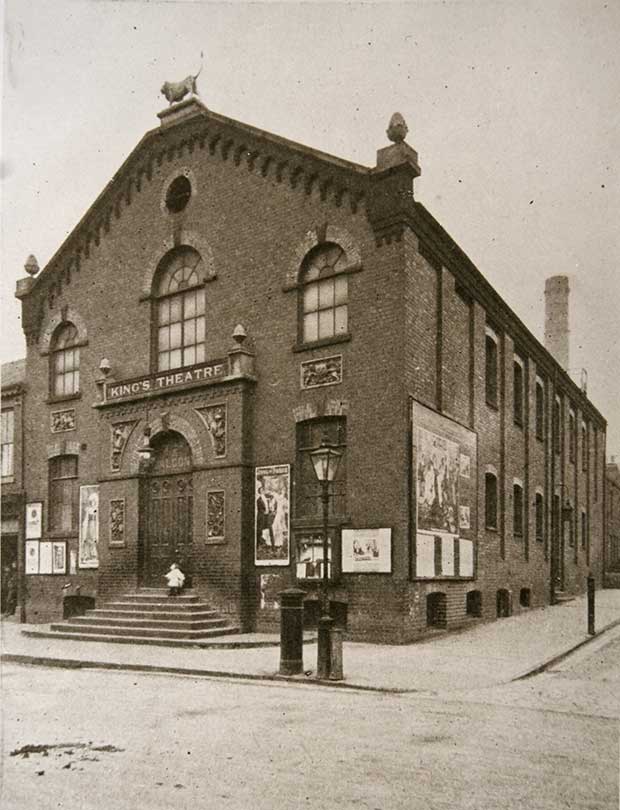
In February 1909, a fancy new thing called electricity was installed at the King’s Theatre, so that “…..the bioscope pictures…..will be seen to the best possible advantage”. The films included one of the pantomimes ‘Ali Baba and the Forty Thieves’ in hand-painted colour. The Central Hall, Hickman Street, was used in October that year for “picture and variety entertainment twice nightly”.
The Grand Theatre opened in November 1910 in the former Congregational Chapel in Caskgate Street, with a London company presenting a 7 day season of comedy shows and it re-opened as a cinema, the imaginatively named Grand Electric Theatre, in April 1911.
But it got big from hereon in!
The Grand Electric closed when the land was purchased in the Market Place behind Hind’s Bakers and the new Grand Cinema was opened. The Grand was Gainsborough’s first purpose-built ‘picture house’ and was opened by the Gainsborough Kinema Company Ltd. In June 1925. The opening film was the wartime epic “Zeebrugge”, along with a specially produced selection of short films depicting people and events in Gainsborough, including; the Constitutional Club, the local Fire Brigade, the Rowing Club, and the Ladies Swimming Club. The cinema was built to accommodate 1,400 patrons with the intention to build an upper circle to accommodate more, although this was never completed.
On the opening evening, the local newspaper reported…..
“…a noble place of mental recreation and entertainment such as few, if any, of the present inhabitants of the town ever dreamed it would possess.”
The “black and white marbled square foyer, with a domed roof and oriental friezing” led into the large auditorium and was deliberately designed in a plain style “for sanitary reasons”. I dare not presume what the reasoning behind that was at the time!
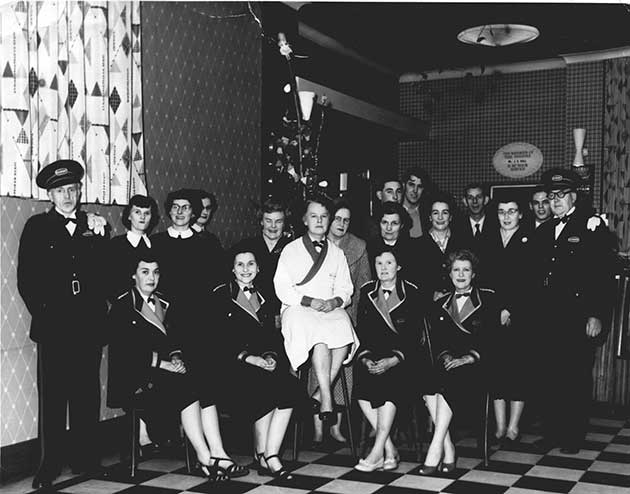
The Grand soon built a reputation for its varied programme of silent movies, which were accompanied by an organ installed by local organ builder T.L. Jubb of Knaith Park. Although not entirely suitable for a cinema, it provided a noble sound and was first used to accompany the film “Ben Hur” before being made redundant with the introduction of ‘talkies’ a few years later
In 1949 The Grand was purchased by the large national company Gaumont British Picture Corporation, and The Grand was soon re-named The Gaumont to form its identity in the circuit. It was decided in 1954, to reflect the new ownership and to update the facilities, that an extensive modernisation programme be undertaken. Having taken several weeks to complete, The Gaumont re-opened at the end of March 1954 as the ‘New Gaumont Theatre’ and was described as “…the most modern and luxurious theatre in Lincolnshire.”
The cinema was reopened on a Gala Night by the Chairman of Gainsborough Urban District Council, Mrs M. Brame JP, following which was the showing of the latest film ‘The Glass Web’, starring Edward Robinson and ‘Trouble in Store’, starring Norman Wisdom. The red carpet was also out as Gainsborough welcomed film stars Joan Rice and Donald Sinden, making personal appearances at the re-opening.
Prices of Admission at the re-opening
Front Stalls 1/6
Centre Stalls 2/3
Back Stalls 2/6
Children 9d. & 1- (Saturdays and Holidays to 4 pm only)
It must have been a bargain for parents to get children out of their hair for a couple of hours on a Saturday, as they could pack them off to the matinee performance of the GB Children’s Club. The club was open to boys and girls between the ages of 5 and 15 years, and films were not the only part of the club’s procedure. Other activities also included community singing, competitions, model-making classes and lessons in areas such as first aid and road safety.
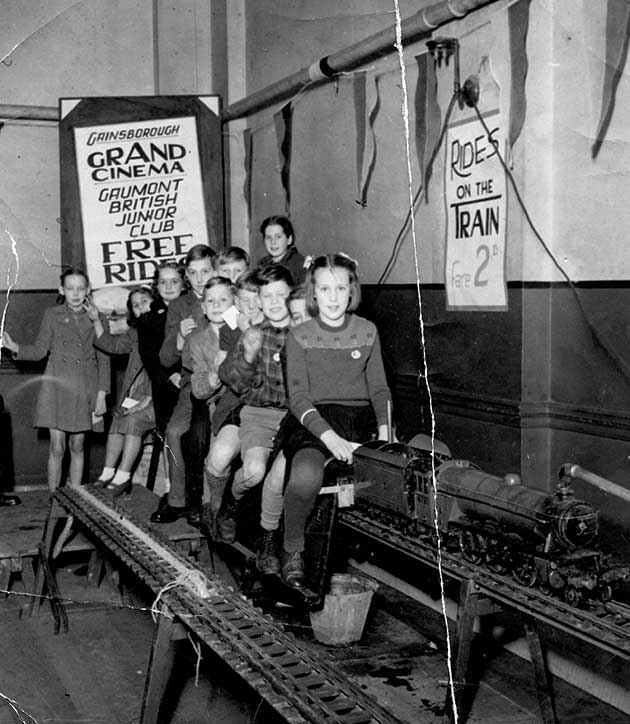
In Gainsborough, many people’s memories are of queuing along the side of the Market Place waiting to be let into the cinema and, whilst outside, calling into Hinds Bakers to purchase the popular ‘penny loaf’ to eat once inside (or, for some, to throw at unsuspecting patrons in the lower rows of seats!). Once inside, the mystery and intrigue of cinema would begin. With all the children seated the cinema manager would process from the back of the auditorium and onto the stage to lead the mass gathering in the words of the GB Club song…..
“We come along on Saturday morning
Greeting everybody with a smile
We come along on Saturday morning
Knowing it’s all worthwhile.
As members of the GB Club
We all intend to be
Good citizens when we grow up
And champions of the free.
We come along on Saturday morning
Greeting everybody with a smile . . . smile . . . smile
Greeting everybody with a smile.”
A mass cheer would erupt across the auditorium and the feature film would begin.
The cinema was sold by Gaumont British in May 1960 to an independent cinema chain, who renamed it back to ‘The Grand’ and operated until it closed in April 1961, the final showing being Spencer Tracy in ‘Judgement at Nuremberg’. The auditorium was sold to the Gainsborough Co-operative Society and became part of their new department store.
But the Gaumont had a rival!
In 1938 when ‘State Cinemas (Gainsborough) Ltd, headed by Mr Reginald Kemp of Star Entertainments Ltd., submitted plans to build a new cinema in Church Street.
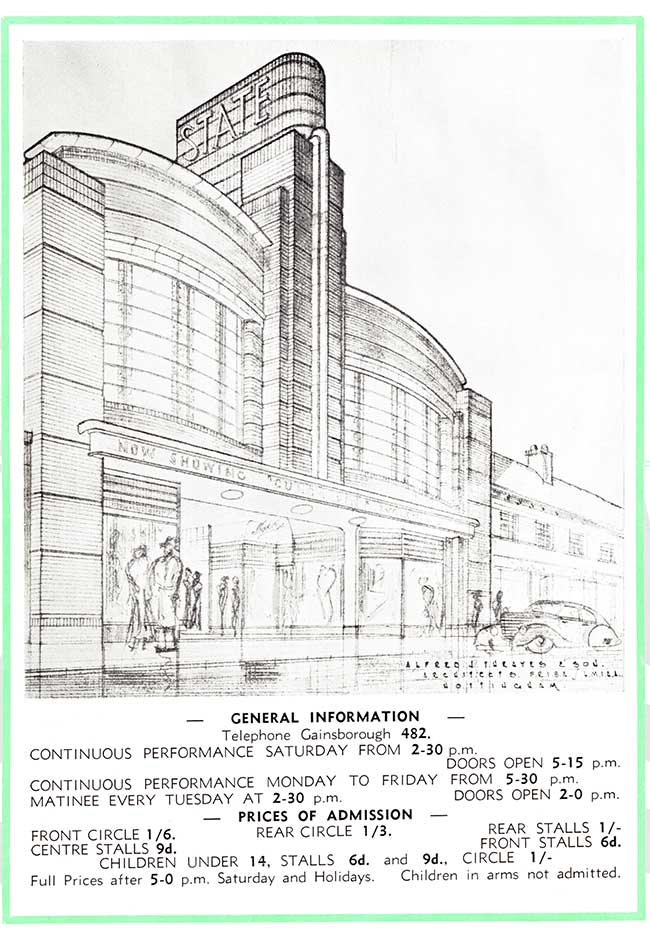
The building of the new State Super-Cinema began in 1939 and was still unfinished when war broke out. But, despite the difficulties in obtaining materials, it was opened by the Chairman of the Urban District Council, Councillor H. Boon, in June 1940. The first film to be shown, and the feature of the opening night, was ‘Destry Rides Again’, starring Marlene Deitrich and James Stewart. As was a popular feature of cinemas at the time, a Cinema Organ was installed in the State Cinema, and played for the first time, a year later.
The State Cinema was used exclusively for the showing of movie pictures, with the exception of a week for the pantomime season and a week during which the local amateur operatic society staged their annual theatre production.
The State was everything you would expect to find with a 1930s Art-Deco period cinema building and stood out proudly amongst the small older buildings that lined Church Street at the time. At its entrance was built two fine modern shops, between which patrons reached the entrance into the Foyer. A fine staircase connected the Foyer with the decadent sounding Balcony Lounge and circle seats, and the luxurious State Cafe.
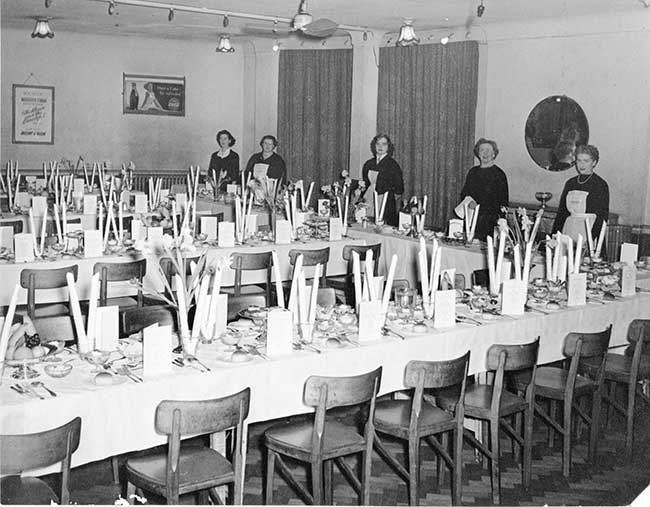
Once inside, patrons were seated in a cinema that was “an entirely new note in Cinema and Theatre Architecture, with lighting features at either side being capable of innumerable colour changes”. The whole auditorium was built to provide an uninterrupted view of the cinema screen, with the total number of seats being 1298 (930 in the stalls, and 368 in the balcony). The opening programme proudly advertised that “throughout the whole building no trouble or expense had been spared to cater for the comfort, safety and satisfaction of the patrons” – this truly was a most modern ‘super-cinema’.
Not only was this a picture palace, but the host of many events ranging from tea dances to annual company parties. There was even a house band! Mike Wood, who was raised in Gainsborough and became a trainee projectionist at The State when he left school in 1953, reminisces that “Mr George Scott, who ran a hairdressers salon in one of the small shops at the front of the cinema, he also had a band The Geo. Scott Ensemble, which entertained in the restaurant/ballroom above the main foyer”.
The State Cinema, in comparison to many other local cinema ventures, had proved to have a successful life as a cinema and entertainment venue, eventually closing after 34 years in June 1973. The building became the well known (and well-loved) Greens Department Store for many years.
Following the closure of the State Cinema, the people of Gainsborough were forced to travel to nearby Scunthorpe, Lincoln, or Doncaster if they wanted to see the latest blockbuster release. However, this did not mean that there was no demand here, and it was no surprise in 1977 when the Church Commissioners gifted Holy Trinity Church to the town that an arts venue with cinema capability was on the drawing table. Local organisation ‘Project77’ was established to raise funds for this venture and construction of the Trinity Arts Centre began to convert the church building in 1981. The opening night in 1986 began with a showing of Michael Douglas in ‘The Jewel in the Nile’, and generations of Gainsborough cinema-goers have passed through its door ever since.
Into the 21st Century…
As the old saying of irony goes “what goes around, comes around”, and this is pretty much relevant to the world of cinema in Gainsborough.
Following the closure of the Greens Store, The State building re-opened as The State Club in 2007. The club installed a retractable screen for the showing of films, beginning in 2008 with a showing of the original opening film ‘Destry Rides Again’, and these initially proved popular. However, this was a relatively short-lived venture and the building once again was closed after less than a decade in operation.
And now, in 2020, there are reports of plans being submitted for the biggest venture in Gainsborough cinema-going yet – a multi-screen cinema. West Lindsey District Council’s website states that “the development is earmarked for the Lindsey Centre site, situated in the Market Place..”. Those of you who have stuck with this article from the start will recall that this is indeed the site of the former Grand/Gaumont Cinema! I will watch this development with interest, as the former auditorium of the old cinema still forms part of that building complex, and who knows what cinema treasures that have been hidden for over 50 years may be discovered. Maybe, once again, the Market Place will play host to a cinema heritage in the town that extends beyond a century, and the sound of excited children on a Saturday afternoon waiting to see the latest release will fill the air.
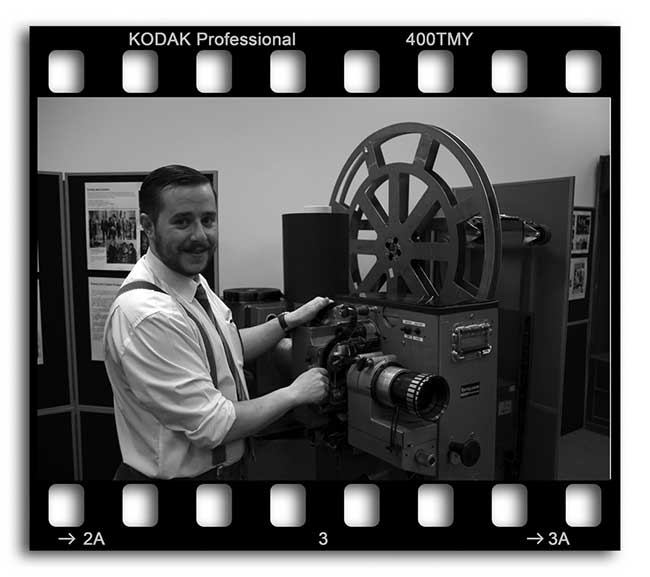

Comments(2)
Rosemary Speck says
12th May 2020 at 11:54 amBrings back some good memories James. Both of my childhood going to ‘Junior Club’ and the exhibition we did about the cinema. Surprised how many people remembered the words to the song.
Linda Clarke says
12th November 2020 at 9:41 pmThanks James. Good memories of my first weekend as a volunteer at the Heritage Centre.
Recent posts
Events